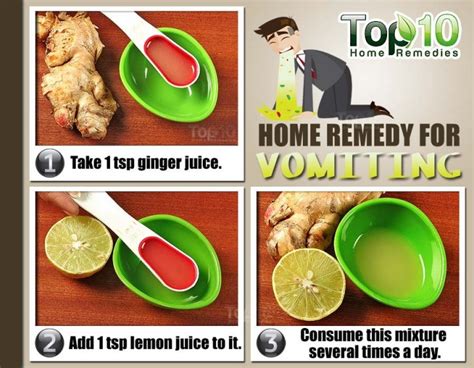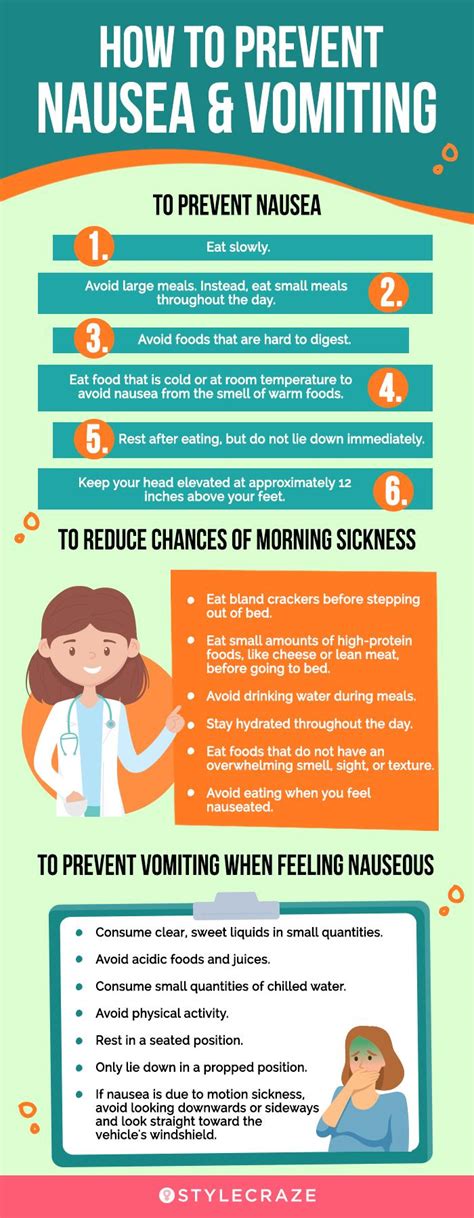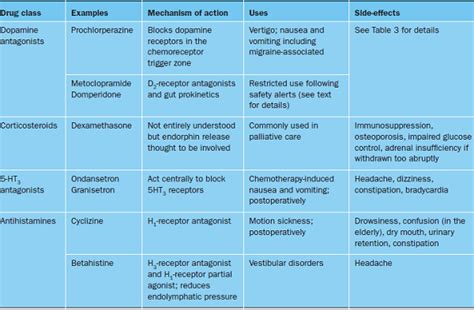Intro
Discover remedies for vomiting, including natural anti-emetics, hydration tips, and dietary changes to alleviate nausea and prevent dehydration, helping you feel better fast.
Vomiting is a common symptom that can be caused by a variety of factors, including food poisoning, viral infections, motion sickness, and more. It's essential to understand what helps with vomiting to alleviate discomfort, prevent dehydration, and promote recovery. In this article, we'll delve into the world of vomiting, exploring its causes, symptoms, and most importantly, the remedies that can provide relief.
When it comes to vomiting, it's crucial to address the underlying cause to effectively manage the symptom. For instance, if vomiting is caused by food poisoning, it's essential to avoid solid foods for a while and stick to a bland diet. On the other hand, if vomiting is triggered by motion sickness, there are various remedies and techniques that can help alleviate the discomfort. Understanding the root cause of vomiting is vital to determine the best course of treatment.
The importance of seeking medical attention cannot be overstated, especially if vomiting persists, is severe, or is accompanied by other concerning symptoms such as fever, abdominal pain, or bloody stools. A healthcare professional can diagnose the underlying cause and provide guidance on the most effective treatment options. Moreover, they can help prevent complications, such as dehydration, which can arise from prolonged vomiting.
Understanding Vomiting

Vomiting is a complex process that involves the coordination of multiple bodily systems, including the digestive system, nervous system, and hormonal system. It's a natural defense mechanism that helps the body eliminate harmful substances, such as toxins, bacteria, or viruses. However, when vomiting becomes excessive or persistent, it can lead to dehydration, electrolyte imbalances, and other complications.
Causes of Vomiting
There are numerous causes of vomiting, ranging from mild to severe. Some of the most common causes include: * Food poisoning * Viral infections, such as norovirus or rotavirus * Motion sickness * Pregnancy * Migraines * Medications, such as chemotherapy or antibiotics * Infections, such as gastroenteritis or appendicitisRemedies for Vomiting

Fortunately, there are various remedies that can help alleviate vomiting. These include:
- Staying hydrated by drinking plenty of fluids, such as water, clear broths, or electrolyte-rich beverages like coconut water or sports drinks
- Resting and avoiding strenuous activities
- Eating small, frequent meals to avoid overwhelming the stomach
- Avoiding solid foods for a while and sticking to a bland diet, such as the BRAT diet (bananas, rice, applesauce, and toast)
- Taking over-the-counter medications, such as anti-nausea or anti-vomiting medications, under the guidance of a healthcare professional
- Practicing relaxation techniques, such as deep breathing, meditation, or yoga, to reduce stress and anxiety
Natural Remedies for Vomiting
In addition to conventional remedies, there are various natural remedies that can help alleviate vomiting. These include: * Ginger, which has anti-inflammatory properties and can help soothe the stomach * Peppermint, which can help calm the stomach and reduce nausea * Chamomile, which can help reduce stress and anxiety * Acupuncture, which can help stimulate the body's natural healing processes * Aromatherapy, which can help reduce nausea and vomiting using essential oils like peppermint, lavender, or gingerPreventing Vomiting

Preventing vomiting is always better than treating it. Here are some tips to help prevent vomiting:
- Practice good hygiene, such as washing hands frequently, especially after using the bathroom or before handling food
- Avoid close contact with people who have viral infections, such as norovirus or rotavirus
- Eat a balanced diet, rich in fruits, vegetables, whole grains, and lean proteins
- Stay hydrated by drinking plenty of fluids, especially during and after exercise or in hot weather
- Avoid triggers, such as certain foods, smells, or situations, that can cause vomiting
Complications of Vomiting
While vomiting is usually a self-limiting condition, it can lead to complications if left untreated or if it persists for an extended period. Some potential complications include: * Dehydration, which can lead to electrolyte imbalances, kidney damage, or even organ failure * Malnutrition, which can lead to weight loss, fatigue, or weakened immune function * Aspiration, which can lead to pneumonia or other respiratory infections * Esophageal damage, which can lead to scarring, narrowing, or rupture of the esophagusTreatment Options for Vomiting

Treatment options for vomiting depend on the underlying cause and severity of the condition. Here are some common treatment options:
- Medications, such as anti-nausea or anti-vomiting medications, to help alleviate symptoms
- Fluid replacement, such as intravenous fluids or oral rehydration solutions, to prevent dehydration
- Dietary changes, such as avoiding solid foods or following a bland diet, to help the stomach recover
- Rest and relaxation, such as getting plenty of sleep or practicing stress-reducing techniques, to help the body recover
When to Seek Medical Attention
It's essential to seek medical attention if vomiting persists, is severe, or is accompanied by other concerning symptoms. Here are some scenarios that require immediate medical attention: * Vomiting blood or coffee ground-like material * Severe abdominal pain or tenderness * Fever above 101.5°F (38.6°C) * Signs of dehydration, such as excessive thirst, dark urine, or decreased urine output * Vomiting that lasts for more than 3 daysConclusion and Final Thoughts

In conclusion, vomiting is a complex symptom that requires attention to the underlying cause, symptoms, and treatment options. By understanding the causes of vomiting, using remedies and natural remedies, preventing vomiting, and seeking medical attention when necessary, individuals can alleviate discomfort, prevent complications, and promote recovery. Remember to stay hydrated, rest, and practice good hygiene to help prevent vomiting.
We hope this article has provided valuable insights and information on what helps with vomiting. If you have any questions, comments, or concerns, please don't hesitate to share them with us. Your feedback is essential to helping us create informative and engaging content.
What are the most common causes of vomiting?
+The most common causes of vomiting include food poisoning, viral infections, motion sickness, pregnancy, migraines, and medications.
How can I prevent vomiting?
+To prevent vomiting, practice good hygiene, avoid close contact with people who have viral infections, eat a balanced diet, stay hydrated, and avoid triggers that can cause vomiting.
What are the complications of vomiting?
+The complications of vomiting include dehydration, malnutrition, aspiration, and esophageal damage. If left untreated or if vomiting persists, it can lead to serious health consequences.
When should I seek medical attention for vomiting?
+Seek medical attention if vomiting persists, is severe, or is accompanied by other concerning symptoms, such as vomiting blood, severe abdominal pain, fever, or signs of dehydration.
What are the treatment options for vomiting?
+Treatment options for vomiting depend on the underlying cause and severity of the condition. Common treatment options include medications, fluid replacement, dietary changes, and rest and relaxation.
We encourage you to share this article with friends and family who may be experiencing vomiting. Your support and engagement can help us create more informative and engaging content. If you have any questions or concerns, please don't hesitate to reach out to us. Together, we can promote health, wellness, and recovery.
